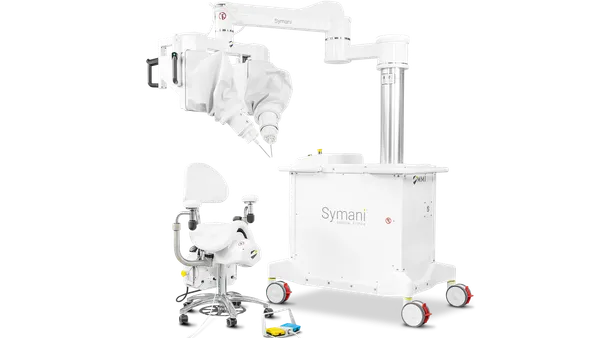Dive Brief:
-
A consortium featuring FDA and leading medtech companies has published a report into how to improve medical device clinical trials by maximizing patient input.
-
The Medical Device Innovation Consortium found the sponsors of medtech clinical trials rarely use patient insights in protocol development or operational study design, leading it to create a guide to support greater engagement from patients.
-
MDIC's report, which follows FDA's 2019 draft guidance aimed at spurring patient shaping of clinical trial design, makes the case for greater engagement in medtech trials and details actions sponsors can take to build organizational capacity and tactics they can use to connect with patients.
Dive Insight:
MDIC was established in 2012 with the goal of enabling knowledge sharing between FDA and the medical device industry. The patient engagement report was created by a working group featuring employees of organizations including FDA, Exact Sciences and Johnson & Johnson. MDIC lists a who’s who of medtech companies including Abbott Laboratories, Boston Scientific, Medtronic and Roche among its members.
The MDIC report identifies opportunities to use patient insights to "help define unmet need, clarify patient preferences, develop endpoints that measure what matters to patients, assist in reducing burdensome study protocol requirements to enhance recruitment and retention, and establish information that can be used in the regulatory process and for postmarketing activities."
For example, the report states patients can provide "detailed and nuanced feedback" about the ways existing treatments fail to address their medical needs. That feedback can guide development of new devices that better address the needs of the target population and studies that encourage participation.
Kevin Kwok, a Parkinson's disease patient advocate, made the case for engagement in a MDIC video accompanying the report. "How often do we actually start a clinical trial only to find that they cannot enroll the target patient group? Patient and caregiver input might identify barriers that actually impact accrual or prevent dropout. We're often told that we don't have time to do these types of patient engagement assessments. It actually ends up costing developers more time at the end," Kwok said.
A significant problem cited in the MDIC report is that the needs patients want addressed may not be obvious to physicians and device trial investigators. "Patient values often differ from that of their doctors or device trial investigators, who may prioritize abnormal physiologic function over all else,” according to the report, which notes that the "deep and personal" understanding patients have of living with a disease can reveal what measures a medical device needs to improve to satisfy end users.
However, three MDIC surveys conducted in 2018 and 2019 suggest patient insights are rarely used to inform the design of device and diagnostic clinical trials. More than half of industry respondents said their organizations never get patient input on protocol development. At the same time, it is rare for companies to seek patient input on operational study design after finalizing the protocol.
The MDIC report advises sponsors to build organizational capacity for engaging with patients and implementing their ideas. That will require the buy-in of employees, ideally with senior leaders being committed to the idea and employees being incentivized to drive engagement.
While putting the ideas into practice will cost money, for example to develop "appropriate patient advocacy relationships," the report contends engagement is "generally not costly" by device R&D standards.













